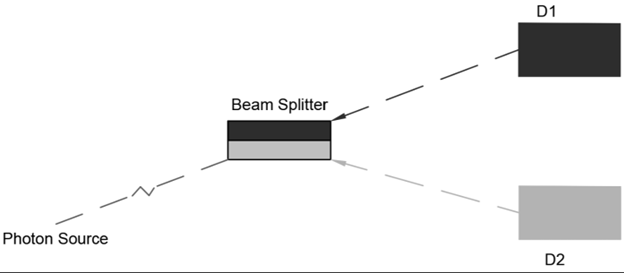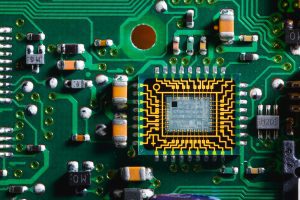Key Takeaways:
- Optics are crucial for all quantum tech, from manipulating photons in optical quantum computing to precisely controlling qubits in other modalities.
- Photonic Integrated Circuits (PICs) enable miniaturization and scalability for quantum processors.
- High NA objective lenses are vital for focusing light and collecting photons in single-atom/ion systems.
- Avantier offers custom, high-precision optical solutions—including micro-optics and specialized objectives—engineered to meet the demanding requirements of quantum computing and communication. We’re your partner in pushing quantum boundaries.
Optical quantum computing holds the promise of revolutionizing computation, capable of tackling problems that remain intractable for even the most powerful classical supercomputers. At its core, this transformative technology relies on the precision manipulation of light particles – photons. Avantier’s advanced custom optics aren’t just components; they are the fundamental building blocks enabling the control, detection, and integrity of quantum information, directly driving the success of next-generation quantum systems.
Here, we’ll explore the essentials of optical quantum computing and highlight why high-performance optics are indispensable for unlocking its full potential.
What is Optical Quantum Computing?
Optical quantum computing, often referred to as photonic quantum computing, harnesses photons as qubits – the fundamental units of quantum information. Unlike other quantum computing modalities, it leverages the unique properties of light to perform complex calculations.
While various quantum computing platforms exist, our focus here is on those utilizing optics. A prominent approach is Linear Optical Quantum Computing (LOQC). In LOQC, quantum information is processed using fundamental optical elements such as:
- Beam Splitters: To create superpositions and entangle photons.
- Phase Shifters: For precise manipulation of photon phase.
- Waveplates: To control photon polarization.
- High-Efficiency Photon Detectors: Essential for measuring quantum states and enabling probabilistic quantum gates.

This reliance on light means that the quality and precision of every optical component directly impact the system’s performance, fidelity, and scalability. Avantier’s custom optics are engineered to ensure the ultra-low loss and high stability critical for these delicate quantum operations, transforming how quantum information is detected, processed, and, eventually, stored.
The Current Landscape of Optical Quantum Technologies
Optical quantum computing is a rapidly advancing field, moving from theoretical concepts to experimental prototypes with increasing complexity. While still in its nascent stages, with significant challenges around scalability, error correction, and maintaining qubit coherence, the progress is undeniable.
Leading research labs and companies are already demonstrating the promise of quantum solutions in specialized applications such as:
- Materials Science: Simulating complex molecular structures for drug discovery and new material development.
- Optimization Problems: Finding optimal solutions for logistics, finance, and resource allocation.
- Machine Learning: Accelerating certain machine learning algorithms.
While classical computers currently dominate in affordability and widespread application, the inherent advantages of quantum operations point to a future where optical quantum computing plays a pivotal role. The advancements in precision optics today are directly shaping this future.
Beyond computation, optics are fundamental to the broader quantum ecosystem:

Photonic Integrated Circuits (PICs): The Miniature Quantum Labs
Similar to electronic integrated circuits, Photonic Integrated Circuits (PICs) orchestrate the flow of light on a chip, replacing electrons with photons. In the context of quantum computing, PICs are transformative, enabling the miniaturization and integration of complex optical circuits required for quantum operations.
Beyond their established uses in medical diagnostics, biosensors, and ‘labs-on-a-chip’, PICs are crucial for:
- Scalable Qubit Architectures: Integrating multiple quantum components on a single chip, reducing size and complexity.
- Enhanced Stability: Offering robust platforms for precise photon manipulation.
- Reduced Loss: Minimizing signal degradation over short distances on the chip.
Avantier specializes in custom optical solutions that can be integrated into or complement PIC designs, ensuring the precise light control necessary for these highly sensitive quantum systems. To learn more about this cutting-edge technology and its diverse applications, explore our dedicated article on [Photonic Integrated Circuits]
Quantum Communications: Unbreakable Security and Future Networks
Beyond computation, optics are foundational to quantum communication, a field poised to revolutionize secure data transfer.
- Quantum Key Distribution (QKD): QKD leverages the fundamental principles of quantum mechanics, using individual photons as qubits to transmit cryptographic keys. The power of QKD lies in quantum superposition (where a qubit can exist as 0, 1, or both simultaneously) and quantum entanglement (where two qubits are linked, regardless of distance). Any attempt by an eavesdropper to measure or intercept these photons instantly alters their quantum state, alerting the communicating parties. This provides a level of provable security fundamentally impossible with classical encryption methods.
- Quantum Teleportation: Quantum teleportation involves the transfer of a quantum state from one location to another without physically moving the particle itself. While not “Star Trek” style matter teleportation, it’s crucial for future quantum networks, enabling the distribution of entanglement over long distances. This information can be relayed via single photons, photon modes, or even single atoms.
The practical deployment of large-scale quantum networks faces challenges such as scalability, noise reduction, and the need for robust error correction. Avantier’s custom optics, including ultra-low loss optical fibers, high-precision beam steering components, and specialized detectors, are engineered to meet these demanding requirements, directly enabling the development of resilient and high-fidelity quantum communication infrastructures.

Quantum light networks are already being used on a limited scale, and they are likely to expand rapidly in upcoming years. Large scale quantum networks are currently in development, and engineers are working to solve problems such as scalability, noise reduction, and automated error corrections.
High Numerical Aperture (NA) Objective Lenses in Quantum Systems
Beyond optical quantum computing, high NA objective lenses play a critical role in other quantum computing modalities, particularly those involving atomic and trapped-ion systems. These specialized lenses are essential for:
- Precision Qubit Addressing: Achieving the extremely tight focus required to individually address and manipulate single atoms or ions with laser beams. This precise focusing is vital for implementing quantum gates and state preparation.
- Efficient Photon Collection: Maximizing the collection efficiency of photons emitted from single atoms or ions, which is crucial for high-fidelity state readout, quantum networking, and entanglement generation. A higher NA means collecting a larger cone of light, leading to significantly improved signal-to-noise ratios.
- High-Resolution Imaging: Enabling high-resolution in situ imaging of individual atoms or ions within optical traps or lattices, allowing researchers to study quantum effects at the single-particle level and verify experimental setups.
- Optical Trapping & Cooling: Creating and maintaining the tightly confined optical traps or “tweezers” necessary for isolating and cooling atoms or ions to ultra-cold temperatures, a prerequisite for many quantum experiments.
The design and manufacturing of high NA objectives for quantum applications present unique challenges, including the need for low aberrations, specific wavelength optimization, and often compatibility with cryogenic or ultra-high vacuum environments.
Avantier: Your Partner in Quantum Optics
At Avantier, we understand that the future of computing and communication is intrinsically linked to advancements in photonics and quantum mechanics. As a leader in custom optical solutions, we are uniquely positioned to provide the precision optics essential for the rigorous demands of optical quantum computing and broader quantum technologies.
Our commitment to innovation and quality is reflected in:
- Unrivaled Expertise: Our optical engineers and designers possess deep knowledge in designing and manufacturing micro-optics and complex objective lenses, critical for the delicate manipulation and collection of photons in quantum systems. We thrive on the challenges posed by this frontier technology.
- Advanced Manufacturing Capabilities: We leverage state-of-the-art manufacturing equipment and processes to produce components with exceptional precision and consistency. This includes [mention specific capabilities here, e.g., diamond turning, advanced polishing techniques for demanding surfaces, thin-film coating for specific quantum wavelengths, and specialized assembly for high NA objectives, or capabilities for cryogenic/vacuum-compatible optics if applicable].https://avantierinc.com/faq/frequently-asked-questions/
- Precision Metrology: Our rigorous in-house metrology ensures every optical component, including complex high NA objectives, meets the most stringent specifications for wavefront quality, low scattering, high transmission, and thermal stability – all vital for maintaining qubit coherence and fidelity across various quantum platforms.
- Customization and Collaboration: We excel at rapid prototyping and custom solutions, working closely with researchers and developers to translate cutting-edge theoretical designs into reliable, high-performance optical hardware, tailored precisely to their quantum experimental setups.
Avantier is proud to stand behind every optic produced in our facilities, confident that they are empowering the next generation of quantum breakthroughs.
Ready to advance your quantum project?
Contact Avantier today to discuss your custom optics requirements for optical quantum computing or any other quantum technology. Our experts are ready to collaborate on solutions that will push the boundaries of what’s possible.
FAQs about Optics for Quantum Computing
- Why are specialized optics so crucial for quantum computing? Optics are vital across all quantum technologies. For optical quantum computing, light is the information carrier. For trapped-ion or neutral atom systems, precision lasers and optics manipulate and read out qubits. Even in superconducting systems, optics are increasingly used for high-bandwidth interconnects. The extreme sensitivity of quantum states demands optics with unparalleled precision, stability, and control to minimize errors and maintain coherence.
- What are Photonic Integrated Circuits (PICs) and how do they impact quantum computing? Photonic Integrated Circuits (PICs) are microchips that manipulate light on a chip, similar to how electronic circuits manage electrons. For quantum computing, PICs are transformative. They allow the miniaturization and integration of complex optical components onto a single, stable platform. This is crucial for scaling up quantum processors, reducing footprint, improving stability, and minimizing photon loss, directly addressing key challenges in building practical quantum computers.
- How do High Numerical Aperture (NA) objective lenses benefit quantum research? High NA objective lenses are critical for precise light delivery and collection at the quantum level. They enable extremely tight laser focus, necessary for individually addressing and manipulating single qubits (e.g., atoms or ions). A high NA also maximizes the efficient collection of photons emitted by these qubits, crucial for high-fidelity state readout, entanglement generation, and overall improved signal-to-noise ratios in quantum experiments.
- Can Avantier provide custom optical solutions for my quantum computing project? Absolutely. Avantier specializes in custom optical design and manufacturing. We understand that quantum computing often requires unique, specialized components not found off-the-shelf. Our expert engineers and advanced manufacturing capabilities allow us to design and produce bespoke optics—from micro-optics and filters to high-precision objective lenses—tailored precisely to your specific wavelengths, environments (e.g., cryogenic, vacuum), and stringent performance requirements for your quantum setup.
GREAT ARTICLE!
Share this article to gain insights from your connections!







